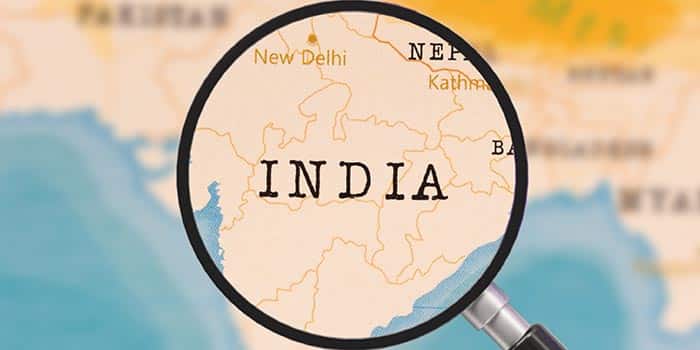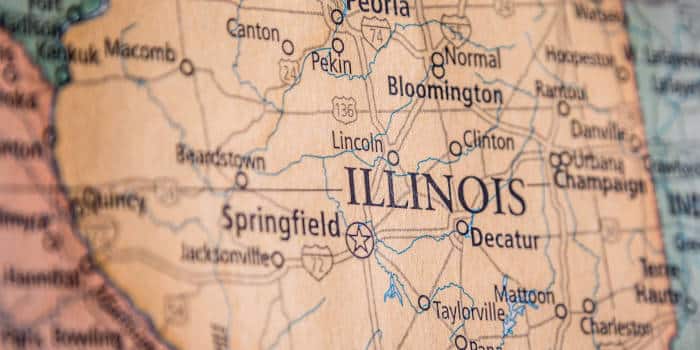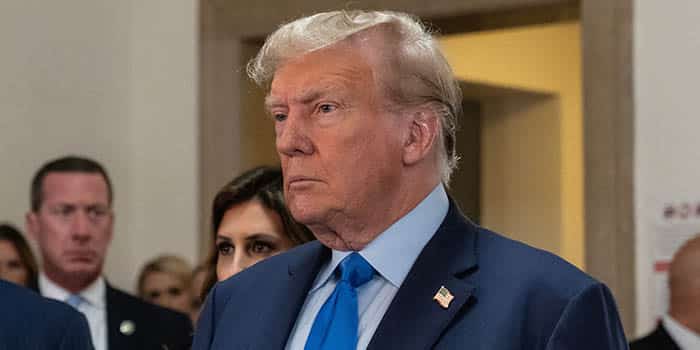- Casino
- By State
- Alabama
- Alaska
- Arizona
- Arkansas
- California
- Colorado
- Connecticut
- Delaware
- Georgia
- Florida
- Hawaii
- Idaho
- Illinois
- Indiana
- Iowa
- Kansas
- Kentucky
- Louisiana
- Maine
- Massachusetts
- Maryland
- Michigan
- Minnesota
- Mississippi
- Missouri
- Montana
- Nebraska
- Nevada
- New Hampshire
- New Jersey
- New Mexico
- New York
- North Carolina
- North Dakota
- Ohio
- Oklahoma
- Oregon
- Pennsylvania
- Rhode Island
- South Carolina
- South Dakota
- Tennessee
- Texas
- Utah
- Vermont
- Virginia
- Washington
- West Virginia
- Wisconsin
- Wyoming
- By State
- Slots
- Poker
- Sports
- Esports
Fact-checked by Angel Hristov
India Holds Firm on 28% GST for Online Gaming despite Industry Pushback
While the country recorded significant growth in gambling revenues, high-profile operators have expressed concerns that the current model is unsustainable

According to the latest data by the Indian government, revenue from online gaming has reached ₹6,909 crore ($832 million) in just six months, rising by 412% despite the recent Goods and Services Tax (GST) hike to 28%. Finance Minister Nirmala Sitharaman confirmed these figures during the 54th meeting of the GST Council on 9 September 2024, highlighting the positive impact on taxation proceeds.
Short-Term Results Hide Underlying Issues
The tax increase, which took effect on 1 October 2023, placed skill-based and chance-based online games in the highest GST taxation bracket. Skill-based games previously fell under a lower 18% rate. According to Sitharaman, the revised tax regime significantly bolstered government revenues while preventing operators from circumventing restrictions by labeling their games “skill-based.”
The current value of the Indian gaming industry is an estimated $3.1 billion, creating the second-largest market in the world, with 442 million gamers. According to recent projections, this figure could grow to $8.92 billion in the next five years. However, new tax rules have created significant issues for companies due to backdated tax liabilities decimating several operators’ bottom lines.
Despite financial gains for the government, the gaming industry has struggled to maintain its previous momentum. Increased operational costs, shrinking margins, and stunted growth have manifested across the sector, hitting smaller operators particularly hard. All but the most prominent gaming firms face difficulties accommodating this new tax rate and several face severe financial stress.
Operators Must Quickly Adapt
Despite these rising issues, Prime Minister Narendra Modi acknowledged the industry’s potential to foster new talent and position India as a global player in the gaming industry. Industry stakeholders remain less optimistic as they stare at significant financial losses amidst the chaos of retrospective tax demands. As the government remains dead set on the 28% rate, the gaming sector must adapt urgently.
I am seeing a big market that has come up in the field of gaming. India has a big heritage in the area, and we can bring lots of new talent to the world of gaming.
India PM Narendra Modi
Stakeholders continue to provide feedback, demanding reforms in the tax valuation mechanism by adopting a “net deposit” model or adjusting the taxable withdrawals. According to them, these adjustments would ease part of the financial burden on gaming firms and allow the sector to maintain its growth trajectory.
Rising financial challenges have forced Indian operators to find solutions to sustain growth and innovation while managing the rising tax burdens. The long-term trajectory of the sector will define how well companies can handle such specific regulatory and financial challenges and whether India’s gambling industry can remain healthy and competitive.
Related Topics:
Deyan is an experienced writer, analyst, and seeker of forbidden lore. He has approximate knowledge about many things, which he is always willing to apply when researching and preparing his articles. With a degree in Copy-editing and Proofreading, Deyan is able to ensure that his work writing for Gambling News is always up to scratch.
Previous Article

Industry
September 10, 2024
NSW Lottery Player Buys a Ticket Out of the Blue, Wins AU$2.5M

Next Article


Industry
September 10, 2024
Palms Casino Resort Appoints Stephen Thayer as General Manager
Must Read
Industry
July 14, 2025
Senate Blocks Attempt to Reverse Gambling Tax Rule
More Articles




Industry
July 17, 2025
UEFA Bans FK Arsenal Tivat Due to Match-Fixing

Industry
July 17, 2025
PAGCOR to Pre-Screen Gambling Ads Before Going Live

Industry
July 16, 2025
ASA Cracks Down on Play’n GO for Problematic Ads












